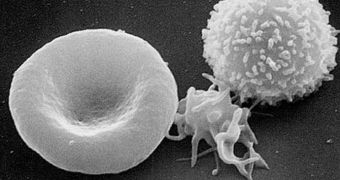According to a new body of work, it would appear that the renowned anticoagulant clopidogrel does not cause adverse side-effects in people with a particular genetic make-up.
The research, which was conducted by scientists at the McMaster University, was prompted by a “black box” warning the US Food and Drug Administration (FDA) issues of the substance.
The federal organization became alerted as to the “dangers” posed by the drug when a group of scientists, based in the United States, Germany and France, complained that the chemical, also known as Plavix, did not benefit people with a particular genetic make-up.
As the FDA issues the warning, the McMaster crew set out to investigate whether the claims had any merit, and thus far it would appear that they did not discover any correlation between the blood thinner and genetically-founded side-effects.
Our findings “add a further layer of complexity to the FDA 'black box' warning and show that reported genetic variants have no effect in certain patient populations,” explains Dr. Guillaume Pare.
He is an assistant professor of pathology and molecular medicine in the McMaster Michael G. DeGroote School of Medicine, and was also the lead researcher of the study, e! Science News reports.
The allegations that were brought against this particular drug are very severe. Statistics show that clopidogrel is the second best-sold blood-thinner on the market today.
Its influence reaches some 110 countries around the world, producing some $6 billion in revenues yearly. Millions use it to treat conditions such as stroke and heart attack, and therefore any risk associated with it could affect numerous people.
To make matters even more serious, genetics experts measured that about 1 in 5 individuals (about 20 percent of the general population), carries the version of the gene that is involved in the controversy.
“We found the previously reported genetic variants had no effect at all (for patients) in either the CURE or ACTIVE trials,” Pare reveals of the work conducted at McMaster.
The expert presented the findings his team made yesterday, August 29, at the meeting of the European Cardiovascular Society Congress, which was held in Stockholm, Sweden.
Details of the research were also published online, in the latest issue of the esteemed scientific publication New England Journal of Medicine.
According to Pare, researchers will from now on need to be increasingly careful about the medication they prescribe, given the growing influence that the field of genetics is beginning to have in everyday healthcare.

 14 DAY TRIAL //
14 DAY TRIAL //